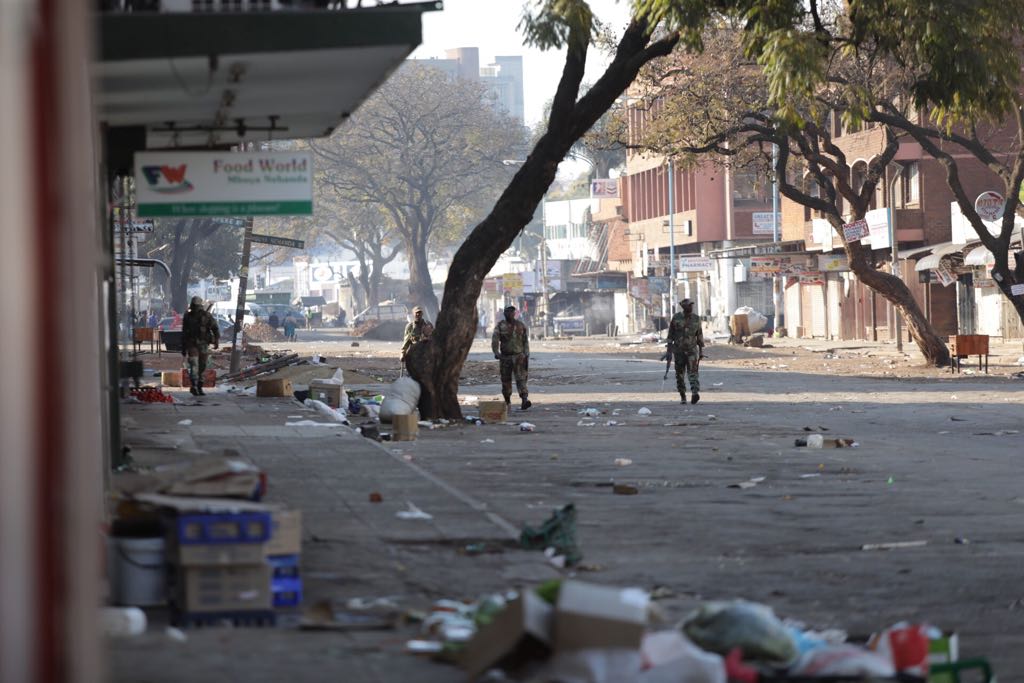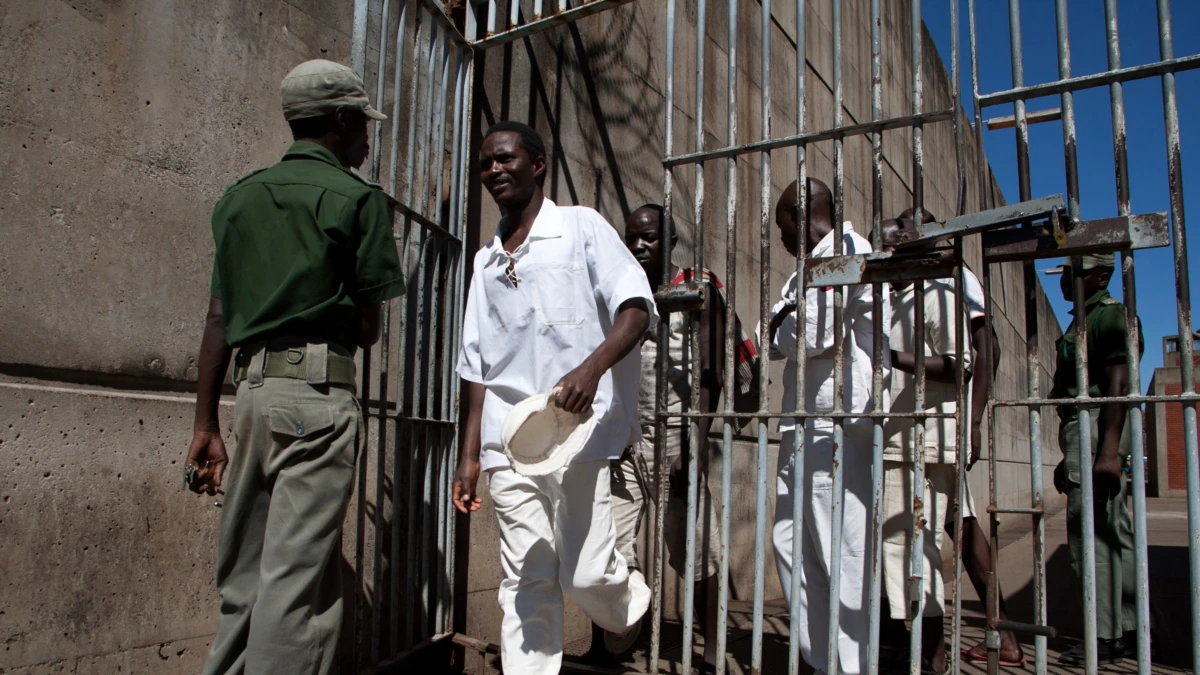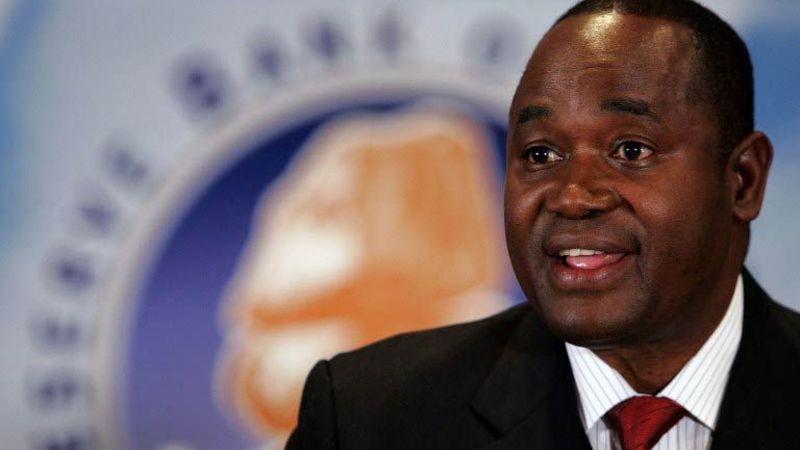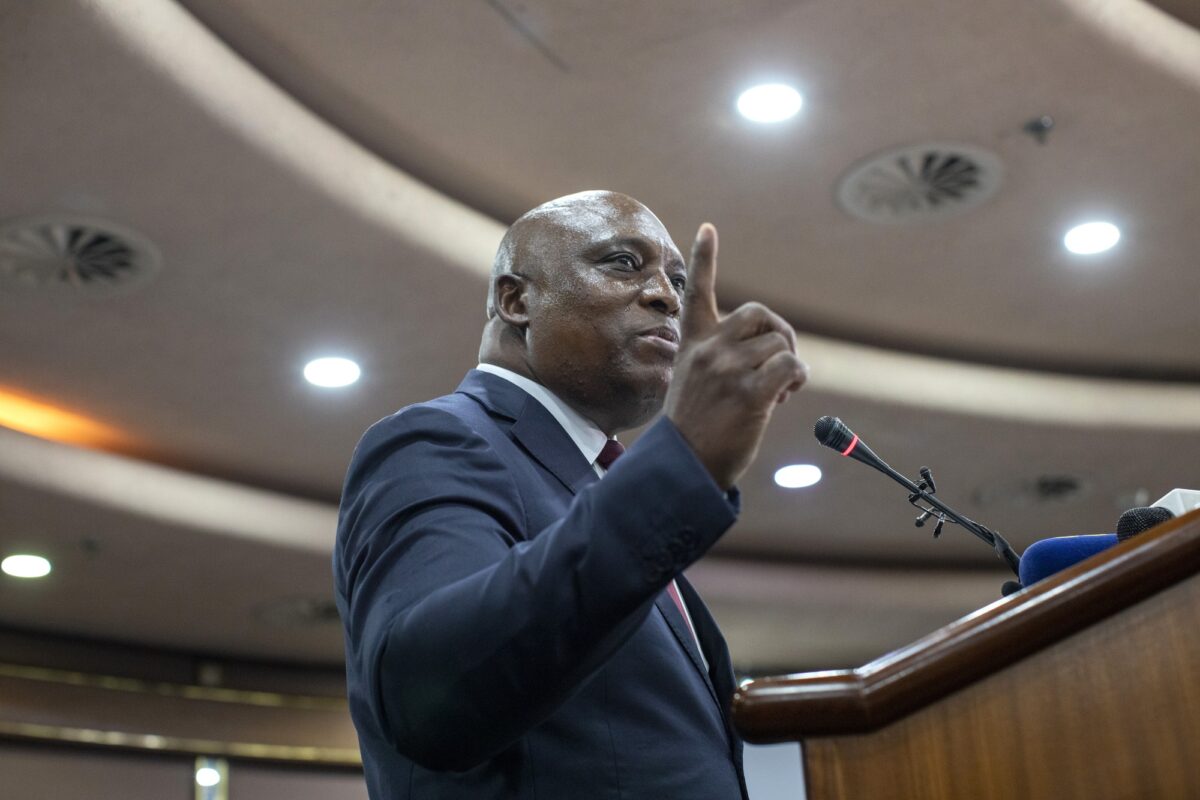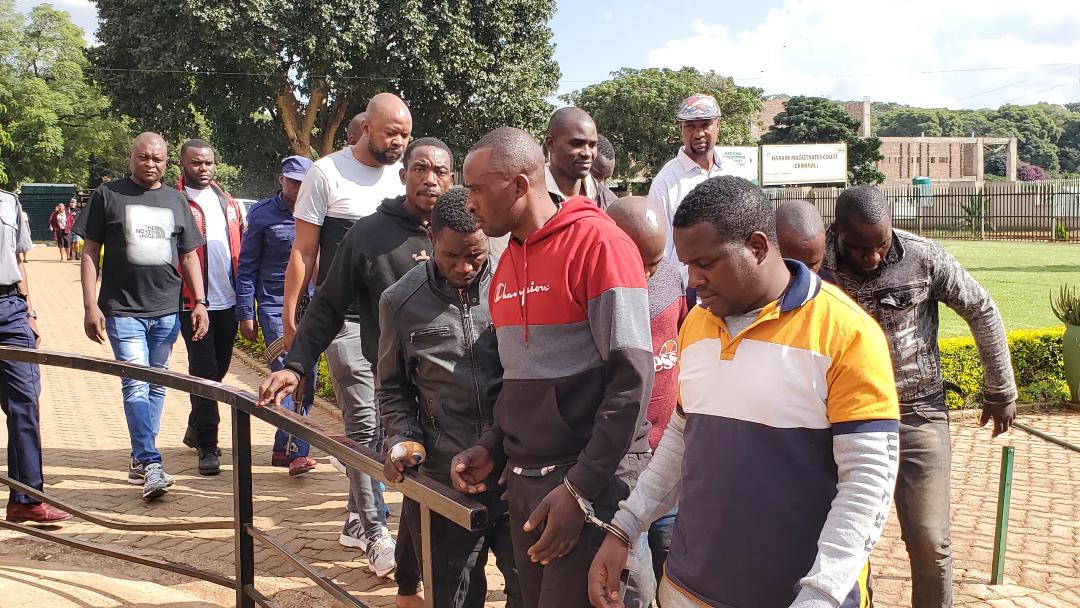HARARE – Emmerson Mnangagwa hoped that the days after winning Zimbabwe’s first election without Robert Mugabe would be full of promises of investment and IMF loans to fix a broken economy. But a ferocious crackdown in the wake of last month’s disputed poll has shattered those illusions.
Ever since soldiers fired at demonstrators claiming the July 30 poll was rigged, Mnangagwa has moved further away from reopening Zimbabwe to the world than at any time since he replaced Mugabe, who was overthrown in a coup last year. Last week, western embassies condemned the “violence, attacks and acts of intimidation targeted at opposition leaders”, which claimed at least six lives.
Not even Tendai Biti, a senior figure in the opposition Movement for Democratic Change and technocrat former finance minister in a unity government, was safe. He fled to Zambia last week in fear of his life before being deported to face what Human Rights Watch called “trumped-up” charges. The US, the most important constituency for Zimbabwe to access the IMF, has been the loudest critic.
The crackdown has exposed the fundamental flaw in any plan by Mnangagwa’s ruling Zanu PF to reopen the country to investors. The economy badly needs foreign cash — literally, given the desperate shortage of US dollars, the currency in most use, which has crippled banks. Yet with Zanu PF returning to form with violent repression of dissent, international investors are spooked.
Speculation that the hardline generals who installed Mnangagwa are driving the crackdown and weakening the president’s authority have heightened anxiety. “No one will want to put his money in where there is no security,” said Wilfred Sithole, a UK-educated engineer. Unable to find work, Sithole ekes out a living as a street vendor in Harare, the capital. The informal economy is believed to support more than half the population, and highlights Zimbabwe’s collapse under Mugabe.
During the election Mnangagwa boasted of securing $15bn in investments for an economy $17bn in size, which attracted less than $300m last year. After taking power, he removed the biggest barriers to investment. Foreign mining investors mostly no longer have to hand over half of their equity to locals. Even a Rwanda-style one-stop shop to cut red tape for investors has been in the offing. But it has come to nought as fears rise over basic stability, especially the seemingly out of control security forces. Multinational companies that planned fact-finding trips after the election are postponing them.
“A recovery was never going to be quick, but we now have more doubts about when it might start and how many potential investors are still interested,” John Robertson, a Zimbabwean economist, said. Much hangs on whether an IMF loan is approved despite the crackdown. Zimbabwe’s cash crisis, by far Mnangagwa’s most immediate priority, will be made much tougher without cheap western money.
Economists and bankers estimate that the central bank’s exhausted reserves will need a $2bn infusion just to begin tackling the problem. They say that a loan could be arranged by Afreximbank, a Cairo-based lender that underwrote issuance of the so-called “bond notes” that have been a stopgap surrogate for the real dollars. The loan could then be syndicated to other banks. But at the same time, and as a precondition for IMF help, Zimbabwe would need a bridge loan to pay off $2bn in arrears to lenders that it defaulted on — mostly the World Bank and the African Development Bank.
Both loans for easing cash shortages and arrears would be short-term, expensive, and likely to be unattractive for commercial banks without IMF money on the way to backstop them. Only an IMF structural reform programme can tackle the root cause of the dollar shortage: state overspending. Public wage bills larger than government revenue are paid for by runaway printing of electronic dollars, such as a central bank overdraft of more than $1bn. But even IMF reforms may struggle against the scale of the patronage system that has kept Zanu PF in power through economic collapse.
Despite a fiscal deficit already more than 13 per cent of gross domestic product, the party bribed civil servants before the election with pay rises. The post-election crackdown has exposed another deep structural problem — the power of the army, which has its own economic interests to defend.
“Even before the election, the army was set to continue playing a prominent role in the economy,” said Michael Gibb, a researcher at Global Witness, the NGO that has exposed secretive military investments in the country’s diamond fields. There has been little accountability for alleged illicit trading worth billions of dollars.
The future of the army’s involvement in diamond mining could be an “interesting test case” for how far Mnangagwa’s reforms will go, which “should command the attention of the international community and donors,” Gibb said. Whatever foreign investors do, many in Zimbabwe’s millions-strong and well-educated diaspora are already resigned to living in exile. Some had made plans to rebuild businesses at home after Mugabe’s fall and awaited a signal from the elections.
“Now it seems like there will be another generation of Western Union babies and parents,” said one member of the diaspora, using a term for families torn apart by their children working abroad to send back cash. “We are going to suffer. We’re already in poverty,” said Clever Kamwana, a 29-year-old who sells phones on Harare’s streets. “It’s going from bad to worse.”
